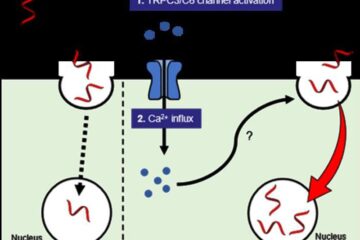EU Grants European Project for the Early Detection of Adverse Drugs Events

The recently approved ALERT project aims to develop an innovative computerized system to detect adverse drug reactions (ADRs) better and faster than spontaneous reporting systems. To achieve this objective, ALERT will exploit clinical data from electronic healthcare records (EHRs) of over 30 million patients from several European countries (The Netherlands, Denmark, United Kingdom, Spain and Italy).
ALERT will use a variety of text mining, epidemiological and other computational techniques to analyze the EHRs in order to detect ‘signals’ (combinations of drugs and suspected adverse events that warrant further investigation).
In ALERT, special emphasis will be placed on the detection of ADRs in children. EHRs from the collaborating European countries all include data on the paediatric population. For children, monitoring of adverse events is especially mandated because relatively little is known about ADRs in children. ALERT will therefore pay particular attention to the additional requirements posed by the paediatric population.
One of the major research issues in ALERT is to discriminate between signals that indeed point to an ADR, and spurious signals. Spurious signals may create unrest and uncertainty in both patients and physicians and may even result in removal of a useful drug from the market. Also from a commercial and regulatory perspective the cost of a false-positive signal is significant.
To discriminate between true signals and spurious signals, in ALERT a possible biological explanation is sought for each signal. This process of signal substantiation requires that the signal be placed in the context of our current understanding of possible biological mechanisms. ALERT will use to the maximum the currently available databases that contain information about these biological mechanisms and augment that understanding with in silico models and simulations of the behaviour of drug and biological systems. ALERT will also rely on experimental screening to test the causal hypothesis generated during the substantiation of signals.
Monitoring of EHRs to detect signals and the subsequent mechanistic substantiation of these signals is a continuous process. As more patient data become available and medical, biological and molecular knowledge expands, previous conclusions will need to be revisited. In order to deal with this constant process of revision, ALERT will focus on automated procedures as much as possible.
ALERT will be carried out by an interdisciplinary team of researchers who share the ultimate objective to demonstrate that an earlier detection of adverse side effects of drugs is possible by using modern biomedical informatics technologies to efficiently exploit both the massive amounts of available EHRs, and the ever-increasing biological and molecular knowledge. The project should demonstrate that scientific and clinical evidence can quickly and directly be translated into patient safety and, thus, health benefit.
The ALERT project (full title: “Early Detection of Adverse Drug Events by Integrative Mining of Clinical Records and Biomedical Knowledge”) is funded with 4.5 million Euro granted by the European Commission in the recently initiated 7th Framework Programme. ALERT will be coordinated by Professor dr. Johan van der Lei of Erasmus University Medical Center (Netherlands), and carried out by a consortium of 18 leading European research institutions.
Media Contact
More Information:
http://www.imim.esAll latest news from the category: Health and Medicine
This subject area encompasses research and studies in the field of human medicine.
Among the wide-ranging list of topics covered here are anesthesiology, anatomy, surgery, human genetics, hygiene and environmental medicine, internal medicine, neurology, pharmacology, physiology, urology and dental medicine.
Newest articles

Next-generation treatments hitch a ride into cancer cells
Researchers from Osaka University discover that opening a channel into cancer cells helps antisense oligonucleotide drugs reach their targets. Antisense oligonucleotides (ASOs) are next-generation drugs that can treat disease by…

Boron deficiency: oilseed rape reacts as with infection and pest infestation
Genetic mechanisms uncovered… Boron deficiency has a devastating effect on oilseed rape and related plants. However, little is known about the underlying genetic mechanisms. A study shows that the response…

Quantum Precision: A New Kind of Resistor
Researchers at the University of Würzburg have developed a method that can improve the performance of quantum resistance standards. It´s based on a quantum phenomenon called Quantum Anomalous Hall effect….





















